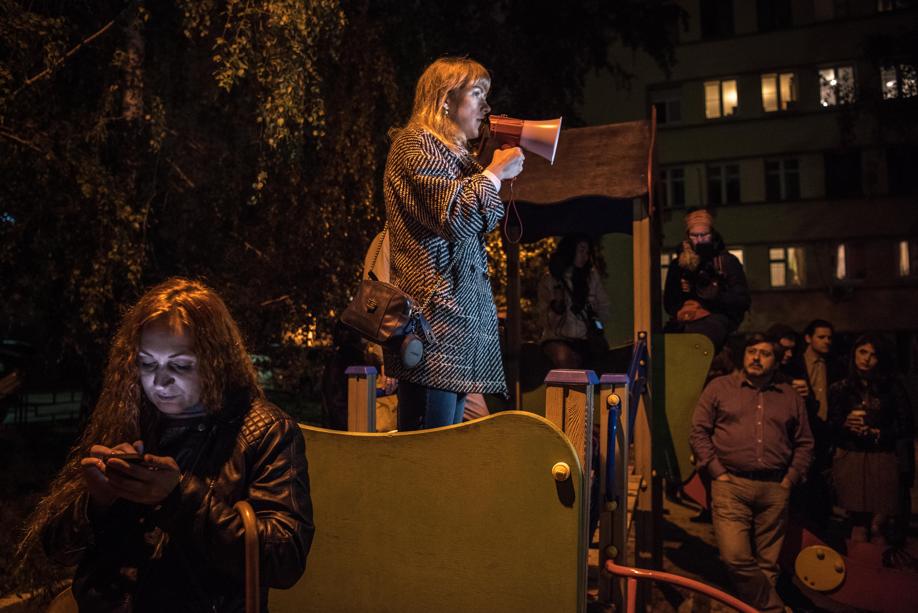
MOSCOW — With parliamentary elections in Russia just days away, a hot competition is unfolding in the race for the seat from the central district of Moscow.
A candidate from the People’s Freedom Party and one from the Open Russia movement are running neck and neck, a rarity in this country’s usually all-too-predictable elections.
The problem in this district, and throughout Russia, from the perspective of the political opposition at least, is that both candidates are staunch opponents not only of one another, but also of President Vladimir Putin. And both are badly trailing the leaders.
The chances that Russia’s opposition parties would make any gains in Sunday’s voting were always vanishingly small. Much of that has to do with Putin, who, after a rule of more than 16 years, has wiped the slate of Russian politics clean, with opponents killed, imprisoned, driven into exile, or sidelined with fabricated criminal charges. Opposition candidates are also barred from appearing on television.
But some of the blame, political observers and the opposition leaders themselves say, has to be borne by the opposition, which is divided and largely ineffective.
In the race in central Moscow, Maria Baronova of Open Russia offered to quit the race — clearing the field for a single opposition candidate — if polls showed her trailing Andrei Zubov of the People’s Freedom Party.
A poll commissioned by Open Russia resulted in a tie, with each candidate shown to have a microscopic 2 percent support from the voters. Both soldiered on. By comparison, the pro-Kremlin candidate in the district, Nikolai Gonchar, led with 21 percent.
“My electorate and the electorate of Andrei Borisovich Zubov are distinct,’’ Baronova wrote in Novaya Gazeta, an opposition newspaper, about her decision to stay in the race. “Andrei Borisovich is a Christian conservative, while I am a liberal centrist with some socialist leanings.’’
She went on to note that “a big problem with our opposition is its ideological and political sectarianism.’’
To be sure, repression is a reason Russia’s 450-seat Parliament has only one member who is openly critical of Putin, and why that number is not expected to expand much, if at all, in Sunday’s elections. And yet, with really nothing to fight over, Russia’s opposition has been plagued by infighting, further harming its prospects.
In Russia, parties are defined as “systemic opposition’’ and “nonsystemic opposition,’’ according to political parlance, with the former being opposition in name, but in fact backing Putin on most matters.
Examples of systemic opposition are the Communist Party and the nationalist Liberal Democratic Party, both of which have large representations in parliament, or Duma, and reliably vote for Kremlin-floated measures.
Polls have shown the “systemic opposition’’ parties’ making gains against the governing United Russia party, capturing some of the populist anger stirring here, as it is elsewhere. But that is not likely to change the country’s politics, policies, or leadership.
The nonsystemic opposition, meanwhile, is splintered into three main political parties and one unregistered faction. All these groups are subjected to prosecutorial assaults, state media campaigns to tar their images, and competition from far better financed progovernment opponents. And yet, beaten down as they are, they still cannot find it in themselves to unite.
Across Russia, more than 120 races are cluttered with multiple opposition candidates, said Zubov, a former history professor who was fired from his state university job for criticizing Russia’s annexation of Crimea.
“The disagreements in the opposition are incredibly useful for the Kremlin,’’ he said. “They feed them and support them in every way. The schism means our chances are tiny.’’


 PREVIOUS ARTICLE
PREVIOUS ARTICLE